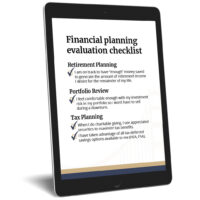
CARES Act helps your business: relief for your retirement plan participants
The Coronavirus Aid, Relief, and Economic Security (CARES) Act was signed into law on March 27, 2020, and includes provisions to assist retirement plan participants impacted by the COVID-19 pandemic. For plan sponsors and their participants, this Act can provide essential financial help to many employees.
The new law provides distribution and loan relief to participants who have been diagnosed with coronavirus disease or who have experienced adverse financial consequences due to the pandemic on account of being quarantined, furloughed, or laid off; having hours of employment reduced; being unable to work due to lack of childcare, or closing or reducing hours of a business they owned and operated.
The plan sponsor may rely upon the employee’s certification of meeting the listed criteria for determining eligibility. Those eligible for relief under the above definition may take advantage of the following relaxed distribution and loan provisions:
Distribution Provisions
- In-service hardship distributions of up to $100,000 are available through December 31, 2020, even if these amounts are not otherwise eligible for a distribution from the plan.
- The 10% penalty for distribution and the mandatory 20% federal tax withholding are waived.
- The distribution is eligible to be repaid within three years to allow for tax-free rollover treatment.
- Participants have the ability to spread federal income taxes attributable to the hardship distribution over three tax years.
Loan Provisions
Loans taken during the first 180 days following enactment of the CARES Act may be in an amount up to 100% of the participant’s vested balance or $100,000, whichever is less.
- Existing loans or new loans taken following the enactment of the CARES Act are permitted to delay loan payments for up to one year, subject to interest accruals. This provision applies to loan payments with due dates that fall between now and the end of 2020.
- After electing to delay loan repayments, any subsequent repayments will be adjusted to reflect the delay in maturity date and any interest accrued during the postponement period.
- Again, all of the above changes apply to individuals directly impacted by coronavirus. All other plan participants continue to be subject to the existing rules for loans and distributions.
Required Minimum Distributions (RMDs) for 2020 are waived for IRAs and defined contribution plans. This waiver applies to all RMDs due in 2020, including first-time RMDs that are for the 2019 year but were not due to be issued until April 1, 2020.
In order for plan sponsors to make these provisions available to participants, the plan document must be amended; however, the Act provides that amendments can be executed as late as the end of 2022 for calendar year plans.
This Act provides welcome relief for workers who do not have other emergency savings. However, some of the provisions create complications for third-party administrators whose software systems must be reprogrammed to accommodate the new rules. Because the Act was fast-tracked, we anticipate the need for technical corrections and/or additional guidance in the future. Until those come, plan sponsors can rely upon a reasonable interpretation of the new rules when deciding how to apply them.
Please do not hesitate to contact us with questions about how the CARES Act applies to your retirement plan.
The information provided herein is for informative and educational purposes only. The use of hyperlinks to third party websites is not an endorsement of the third party. Third party content has not been independently verified. To understand how this content may apply to you, please contact a financial advisor.





